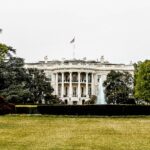Reasons for Optimism in the Time of Coronavirus
Most of the headlines surrounding the novel coronavirus are legitimately worrying. Even if you have not been directly affected by the virus, everyone has felt the economic impacts of this episode.
However, there are (at least) two reasons we should be optimistic. One, this crisis has created a rare opportunity for deregulation. Two, we have had a very clear display of how awesome markets are–and why we can trust the invisible hand to solve problems that people are often skeptical can be solved through markets
Let’s look first at deregulation. States have relaxed a variety of minorly and majorly-annoying regulations in order to allow individuals and businesses to respond to crisis-induced needs. On the medical front, multiple states have relaxed licensing restrictions for medical professionals. In normal times, most states make it difficult to practice medicine across state lines – but in some states, out-of-state physicians and nurses can now get licensed in as little as a day. Some states have also allowed individuals with lapsed licenses to rejoin the ranks of the medical establishment during this crisis time. Out of necessity, the Food and Drug Administration has also relaxed a whole slew of restrictions, ranging from fast-tracking the approval of respirators and ventilators, to easing access to antivirals, and allowing private and university-based researchers to develop and use coronavirus tests.
Outside the medical field, we’ve seen the Department of Transportation relax a variety of restrictions on truckers, which have allowed them to move more goods across the country at a faster rate than would otherwise have been possible. States have also relaxed restrictions on the ability of restaurants to include alcoholic beverages with takeout or delivery orders. Some states have even opened up the opportunity for breweries to directly deliver beer to their consumers.
With respect to markets revealing just how magical they actually are, examples abound. Companies like Brooks Brothers and Lilly Pulitzer have shifted a portion of their manufacturing to making masks and other necessary medical items. Distilleries and makeup companies have shifted some portion of their production into making hand sanitizer. People and companies with 3D printers across the country have been manufacturing everything from nose swabs (a necessary component of coronavirus testing) to face masks to ventilators.
What’s really cool is that there is no centralized entity directing market participants to shift their production in this way. This is purely an example of the invisible hand becoming visible. These companies see that their manpower and resources have more pressing uses during this crisis and are re-orienting some of their production into meeting these needs.
It is well-established that governments often grow in times of crisis and fail to shrink back down afterwards (this is known as the “ratchet effect”). We are absolutely seeing government growth in this crisis as well–indeed, the largest-ever stimulus package in the history of the US has recently been signed into law.
However, this episode should also give market enthusiasts some hope. After things return to their new normal, we should be able to clearly show that the virus-induced deregulations created substantial social benefits during this time. We should also be able to show that, when left to their own devices, market participants respond pretty well to unmet needs.
I think we need to highlight both of these processes if we want some of these deregulations to stick. It seems the main reason that people champion government solutions is because they don’t trust markets and invisible hand type processes to solve big problems. Right now, however, we’re simultaneously seeing deregulation and markets stepping in to solve these sorts of problems. Both of these need to be highlighted if we want sustainable change–not just a temporary relaxation of restrictions for the sake of the pandemic.




